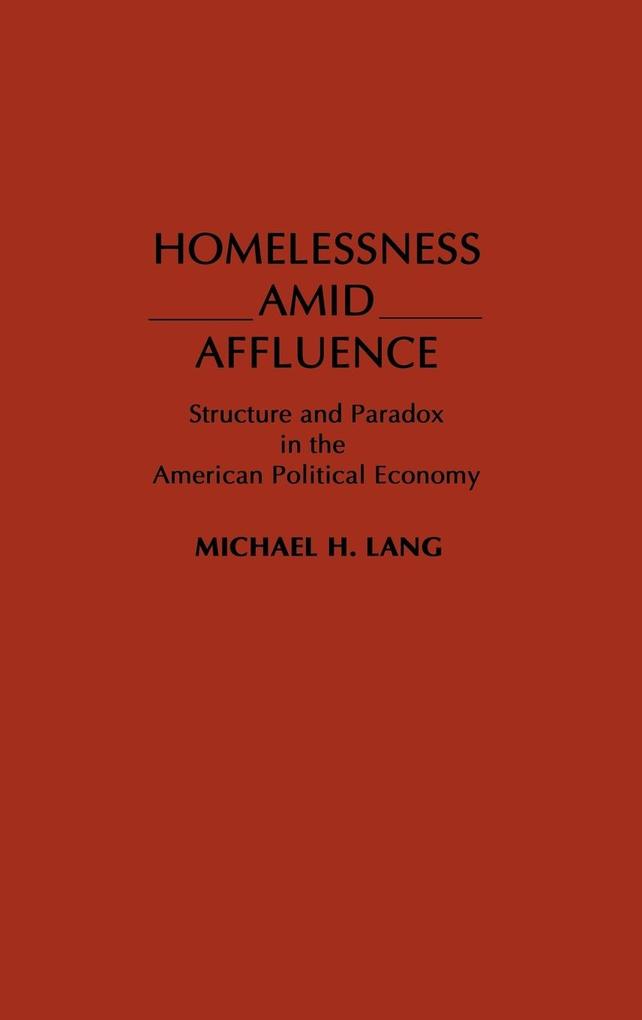Approaching the problem of homelessness from a broad public policy perspective, Lang focuses on the American political economy and how it permits community development patterns based on racism and self-interest. This interdisciplinary study challenges the belief that homelessness is entirely due to the Reagan administration's cutbacks. Instead, it suggests the need for reform in our housing and employment policies. The book reviews competing socioeconomic paradigms that can explain why meaningful and effective programs are difficult to enact. Homelessness Amid Affluence discusses housing, community development patterns, economic segregation, and problems of the urban underclass, as well as proposed solutions. The interdisciplinary nature and historical perspective of this volume make it informative reading for sociologists, social workers, policymakers, and researchers. <p/>This volume is divided into five sections. The first section provides a conceptual overview. Section Two deals with the urban policy context from which a solution to homelessness must emerge. Section Three covers low-cost housing while Section Four deals with specific policies and programs developed in response to the needs of the homeless. A case study based on the author's experience with the efforts of Camden County, New Jersey is included. The last section analyzes some new policy approaches and ends with an assessment of the likely policy outcomes to emerge from this continuing debate.
Inhaltsverzeichnis
Understanding homelessness; homelessness, past and present; homelessness and unemployment - theoretical aspects; the urban policy context; the urban policy process; urban housing policy; policy initiatives to produce low cost housing; low cost housing initiatives; fair share/balanced housing initiatives; policy initiatives to assist the homeless; policies and programs to alleviate homelessness; local shelter policy - a case study; real policy reform - the impossible dream?; towards a national right to housing; summary and conclusions - towards a policy of balanced community development.












